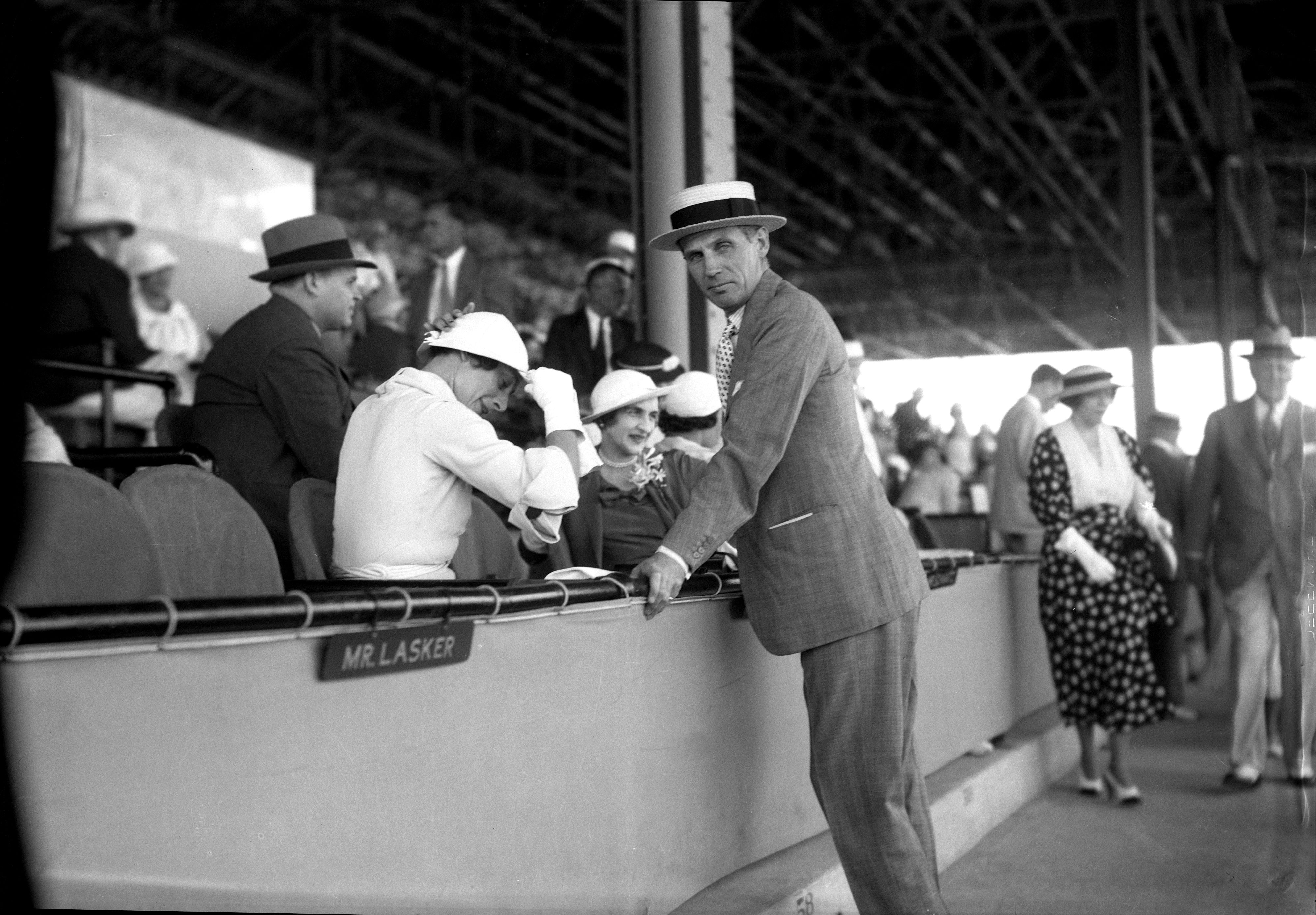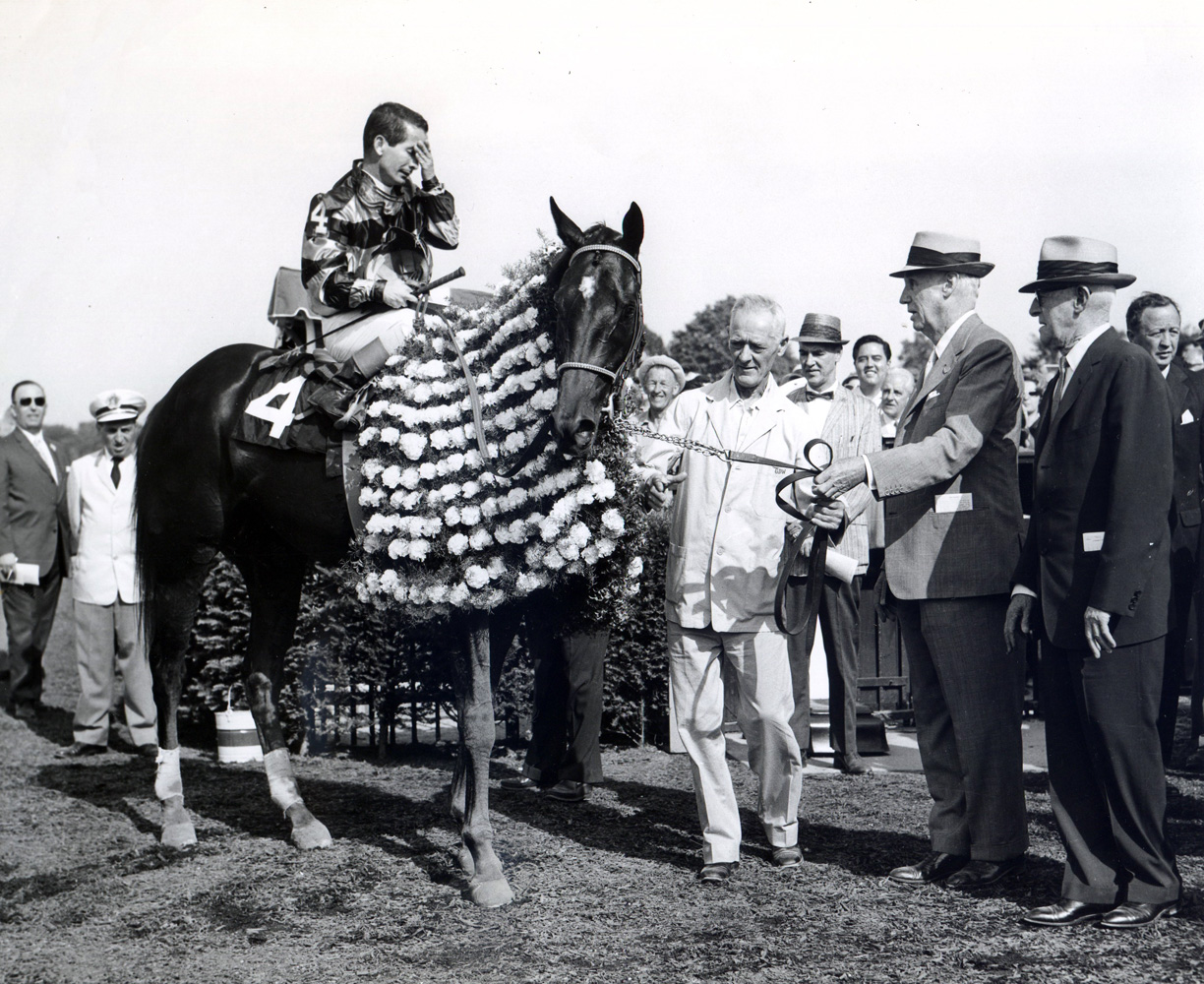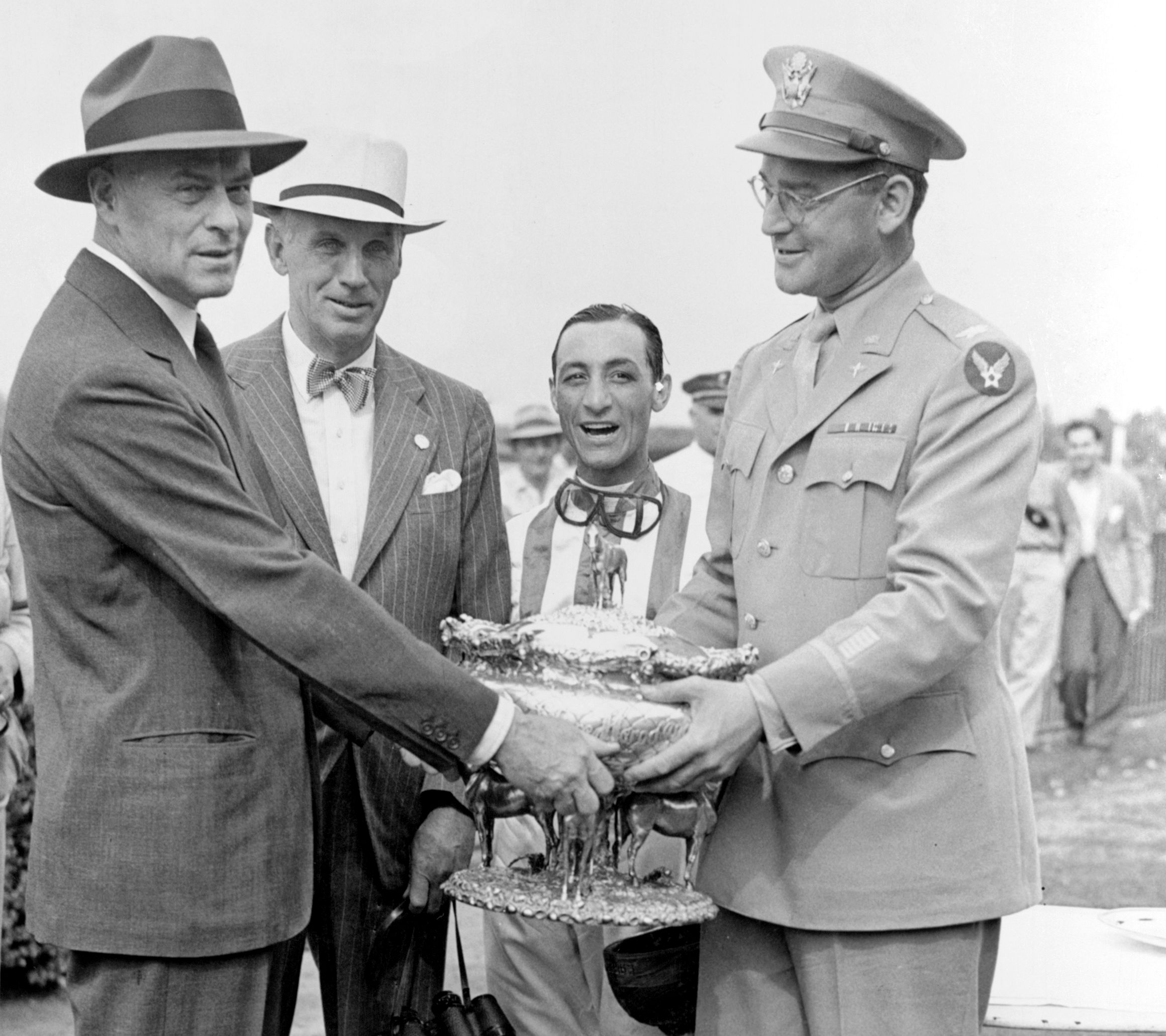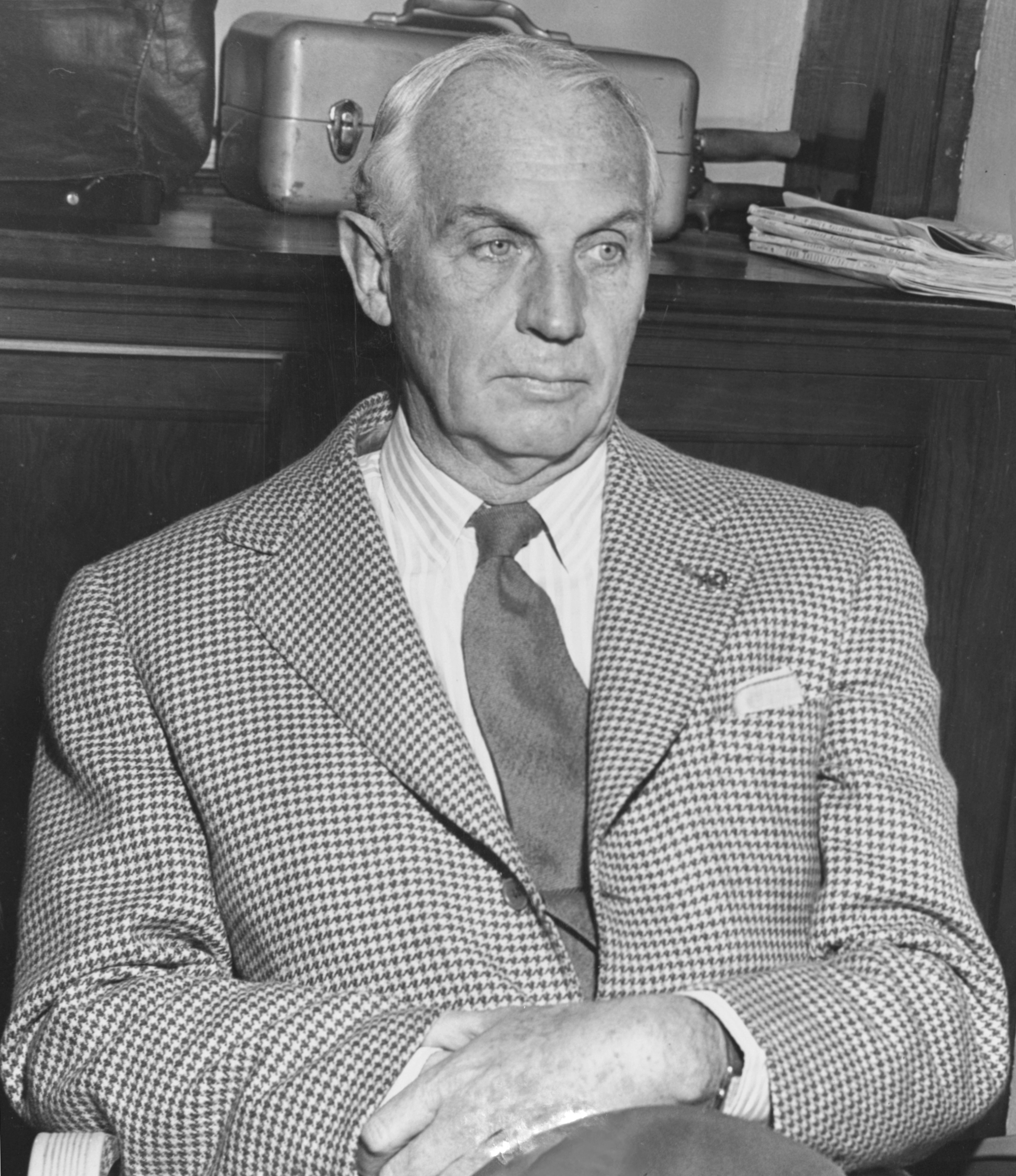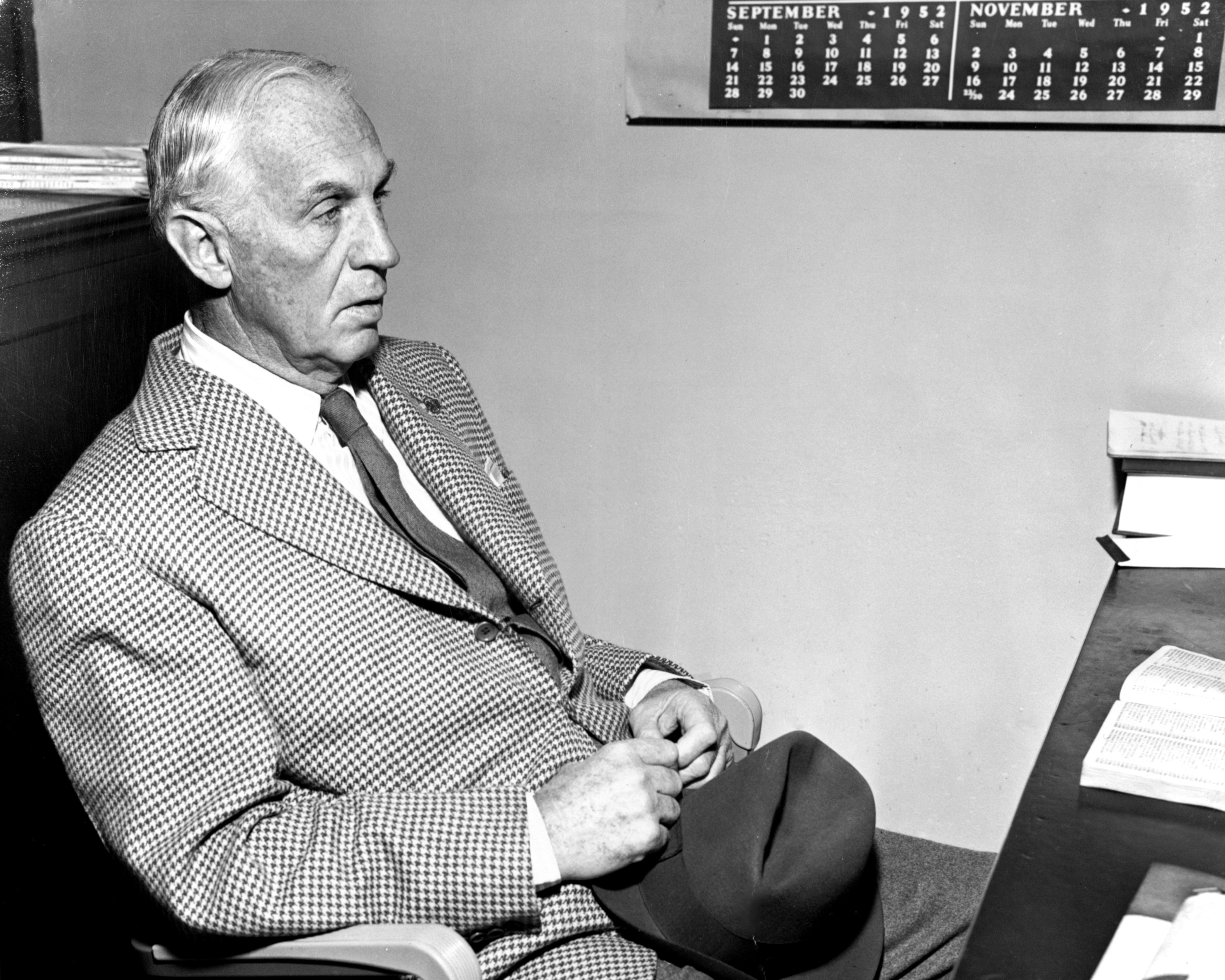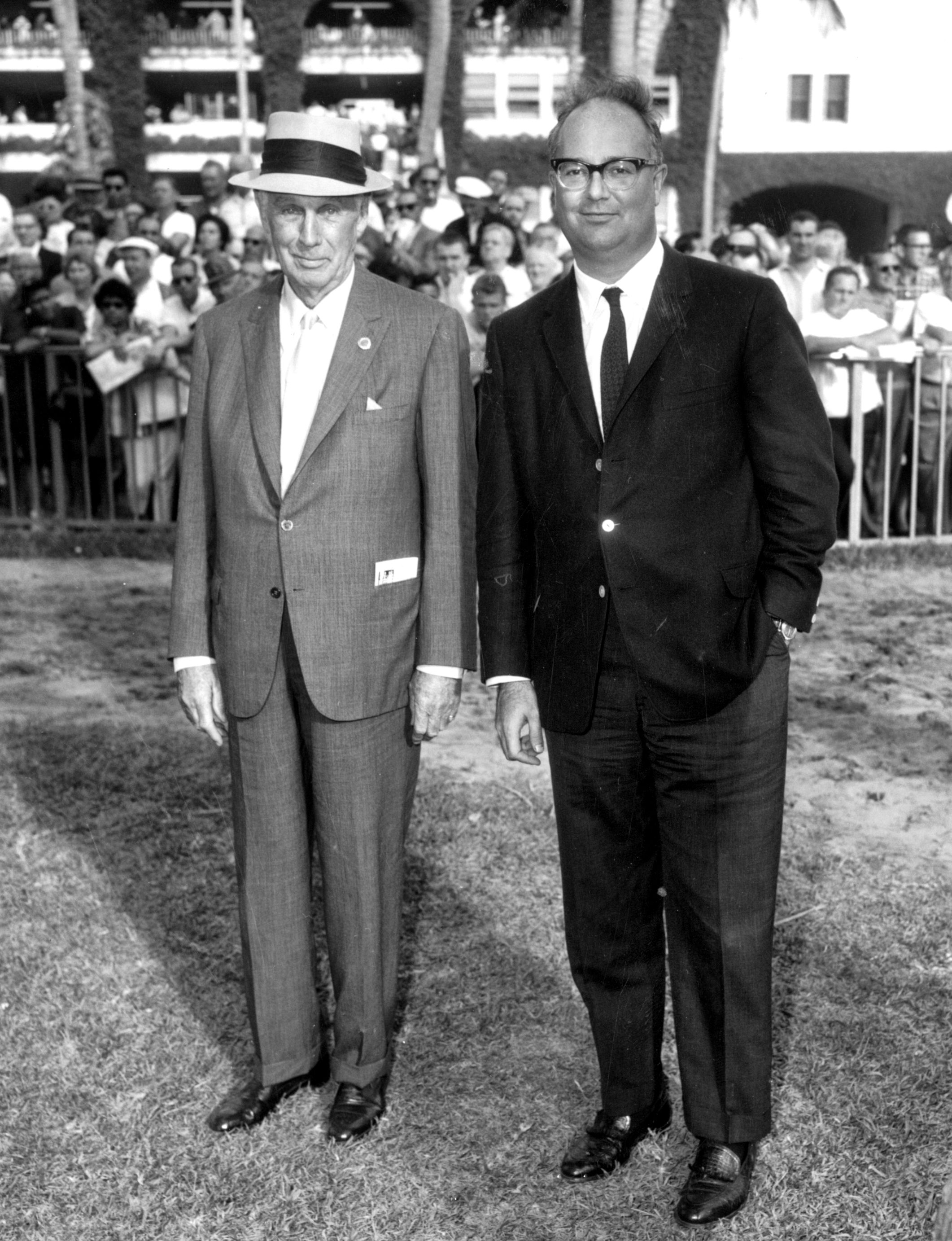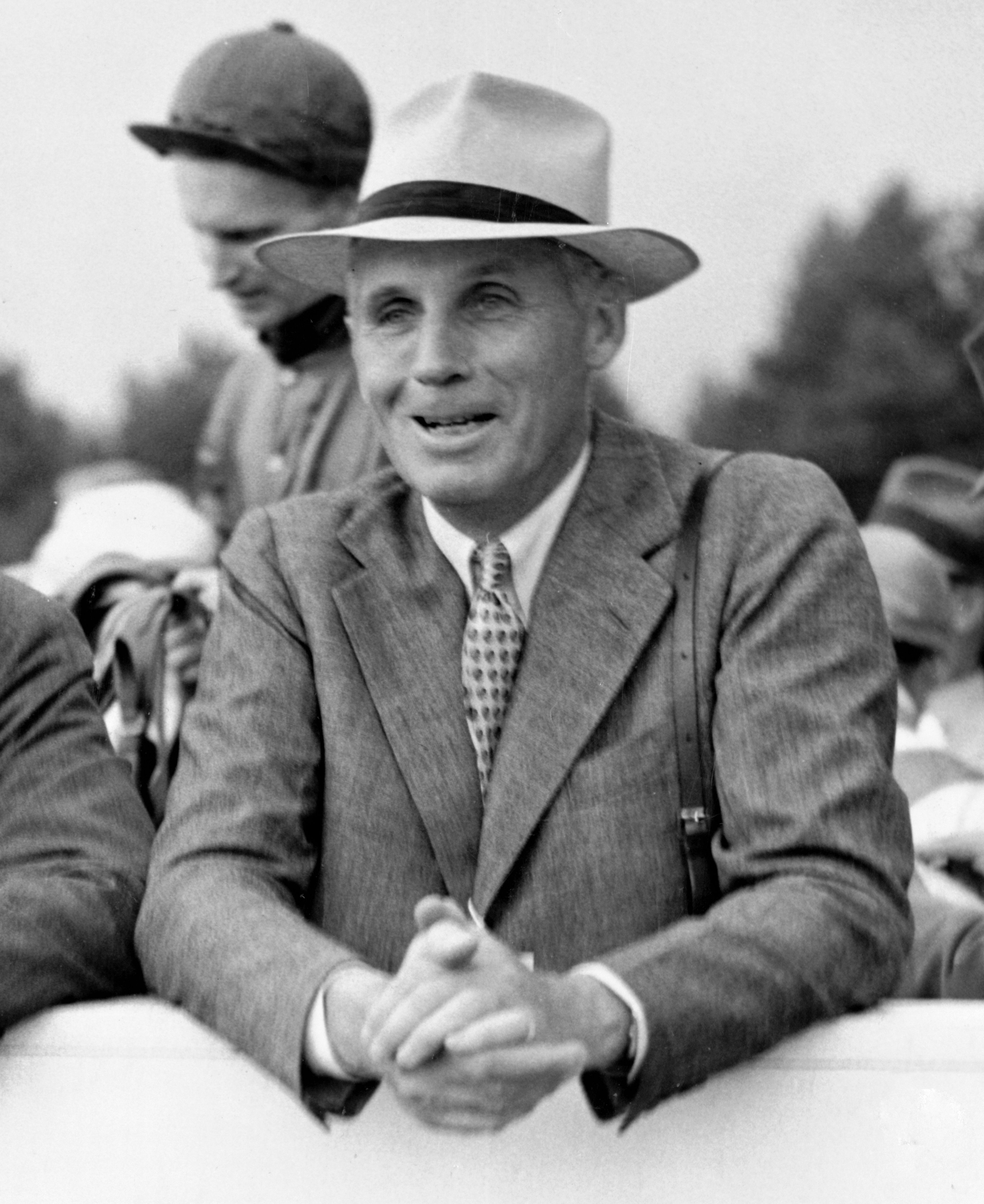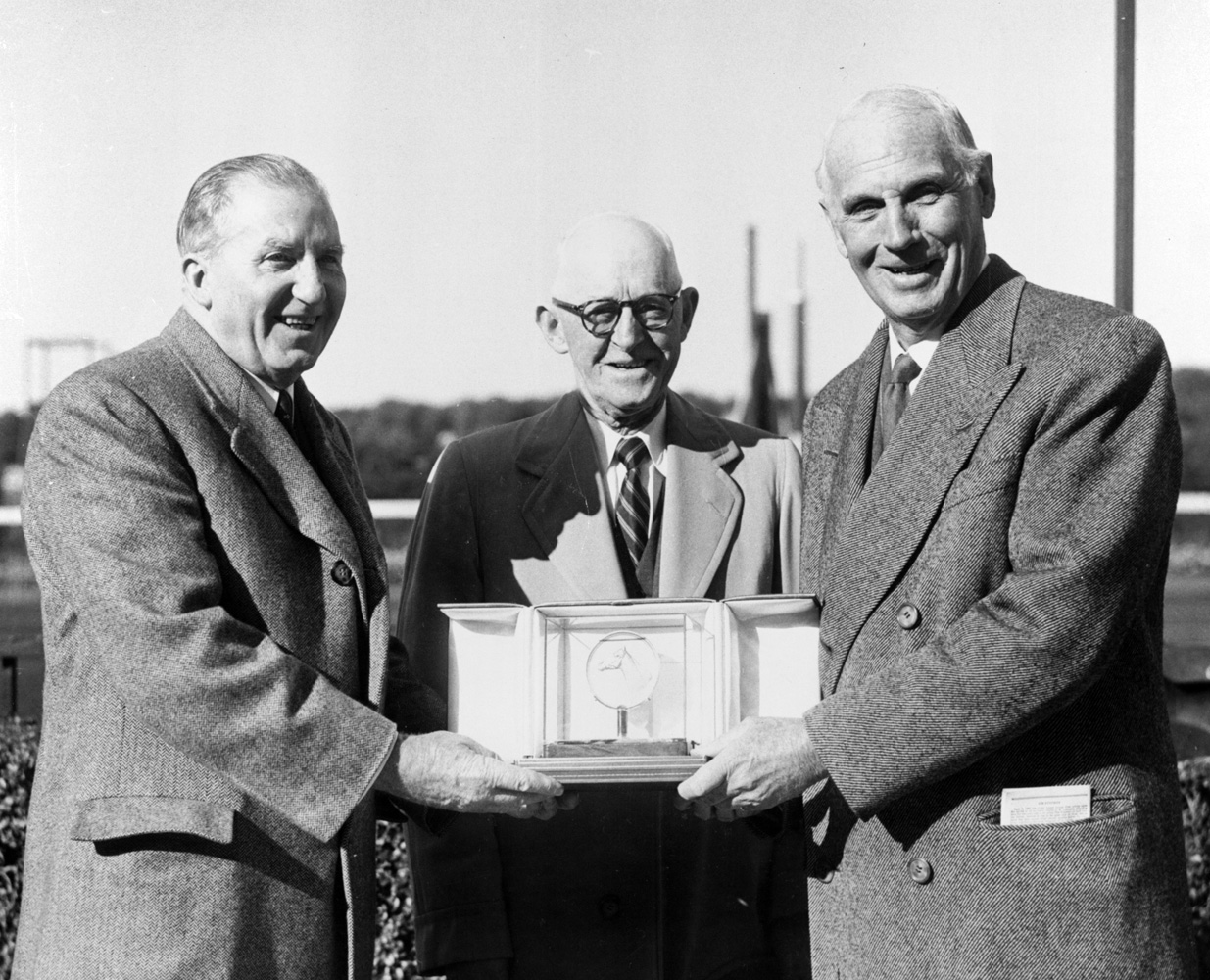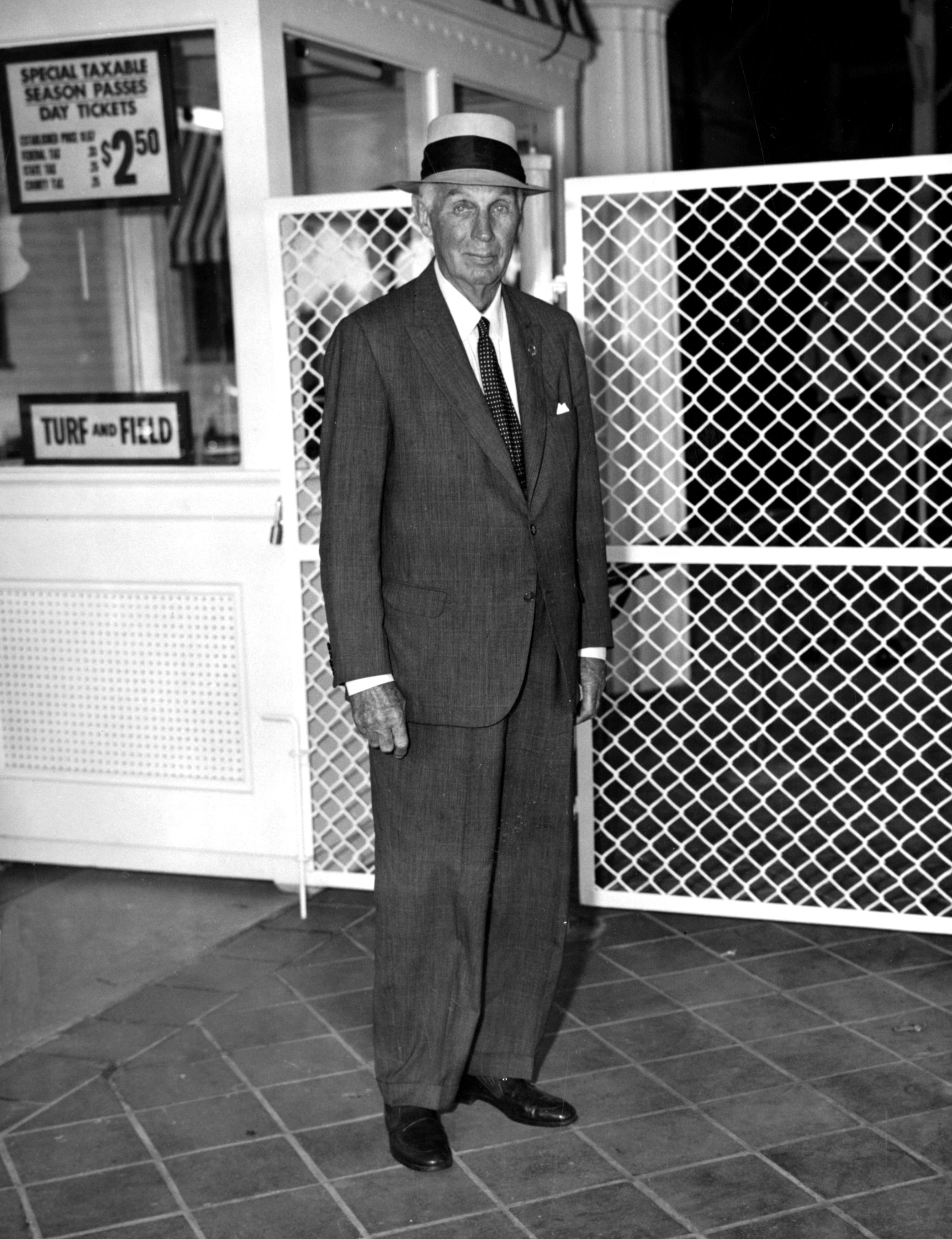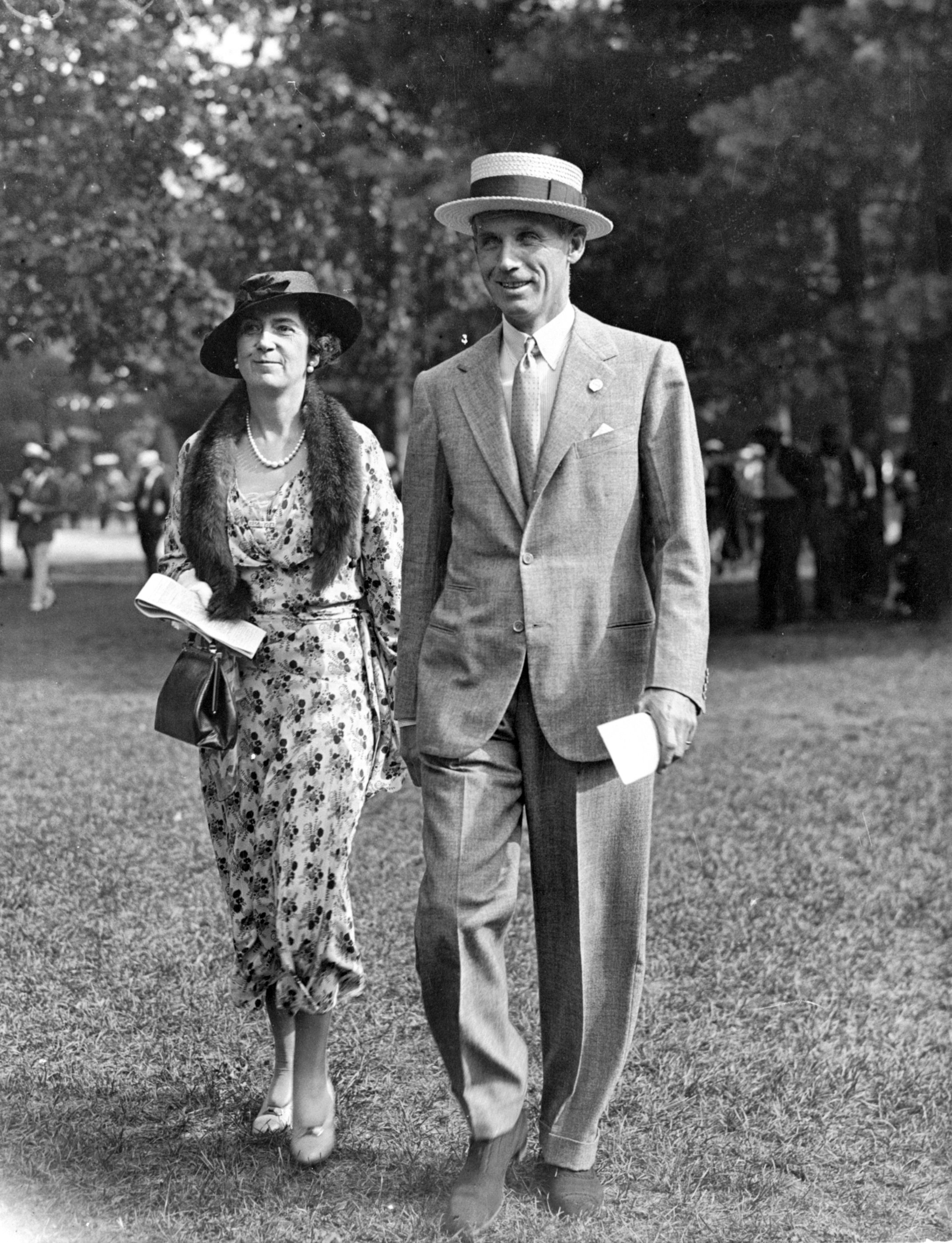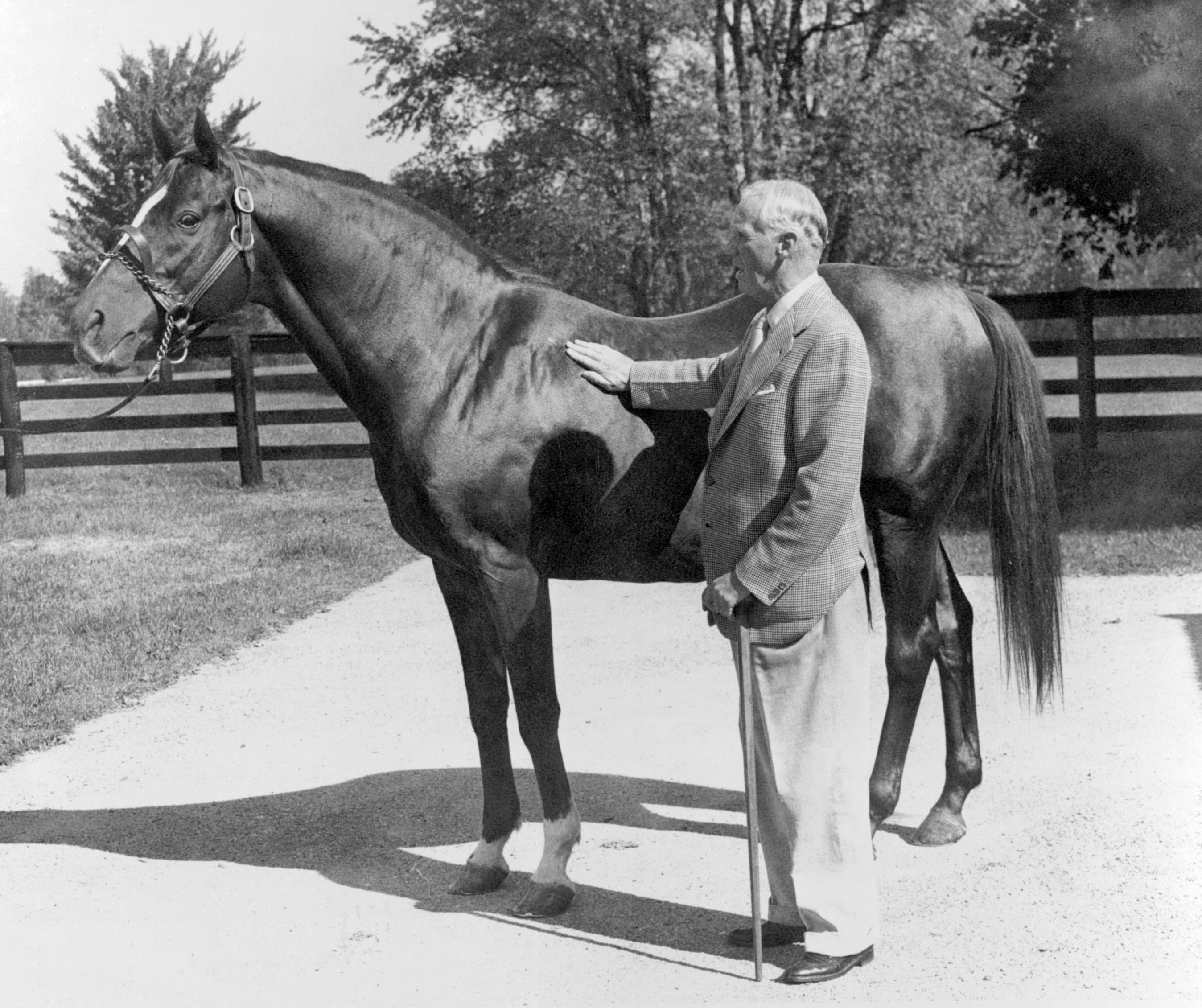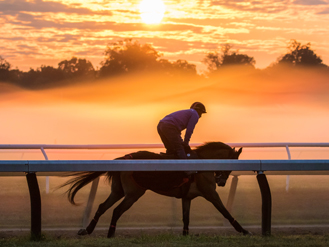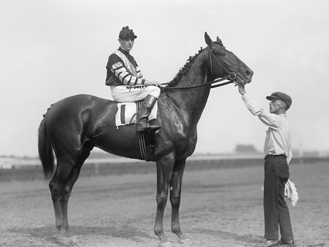George D. Widener, Jr.
George D. Widener, Jr. was a man who believed in reciprocity and understood the symbiotic relationship top thoroughbred owners and breeders need to have with the sport of racing to ensure the overall good health and success of the game.
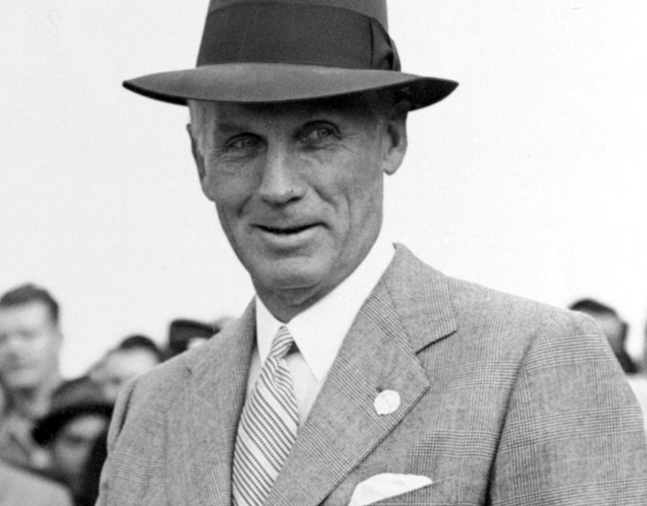
2020
March 11, 1889, Philadelphia, Pennsylvania
Dec. 8, 1971, Whitemarsh, Pennsylvania
Biography
George D. Widener, Jr. was a man who believed in reciprocity and understood the symbiotic relationship top thoroughbred owners and breeders need to have with the sport of racing to ensure the overall good health and success of the game.
For more than a half-century, Widener basked in the glory of his numerous great racehorses and the prizes they won on the track. He bred 102 stakes winners — including seven champions — won the Travers Stakes a record-tying five times and campaigned a Hall of Fame member in Eight Thirty. But while Widener benefitted from the sport, the sport also benefitted from his presence and astute leadership.
“My activities are racing. It has always been that way because I was fortunate enough to be in a position to make it so,” Widener once said. “I did not seek it, but once that was the fact, it seemed to be a useful and creditable way of life. I have devoted most of my adult life to just that. Although I am on the board of several corporations, my chief interest has been the turf and its improvement. I am hopeful that this will be considered of value.”
Widener was born into a prominent and wealthy Philadelphia family in 1889. His grandfathers, streetcar magnate Peter A. B. Widener and oil and steel financier William Lukens Elkins, were longtime friends and business partners. Widener’s father was also a successful businessman and eventually took over the running of the Philadelphia Traction Company, overseeing the development of cable and electric streetcar operations. Widener’s father and his brother, Harry, both died in the sinking of the Titanic in 1912. Widener’s mother, Eleanor, was also on the ship but was placed in a lifeboat by her husband and survived.
Elected to The Jockey Club in 1916 at the age of 27, Widener became an immediate and lasting presence in the sport. That year, he purchased Erdenehim Farm near Philadelphia and won his first stakes race as an owner, the Walden Stakes with homebred Columbine at Pimlico Race Course. In 1923, Widener bought a portion of historic Elmendorf Farm near Lexington, Ky. Widener’s parcel of Elmendorf, known as Old Kenney Farm, became the primary home for his breeding operation. Among the stakes winners bred by Widener were the champions Jamestown, High Fleet, Platter, Stefanita, Evening Out, Jaipur, and What a Treat. He also bred and owned Hall of Fame member Eight Thirty, winner of the Travers, Whitney, Suburban, Metropolitan, Toboggan, and Massachusetts handicaps. Jaipur won the Belmont and Travers for Widener in 1962. Widener also owned champion Battlefield, another of his record-tying five Travers winners.
Jaipur’s Belmont victory was especially meaningful to Widener, who had long coveted winning the race. Before a crowd of more than 50,000, Jaipur beat Fred Hooper’s Admiral’s Voyage by a nose. Dating back to 1918, Widener had entered nine horses unsuccessfully in the Belmont before Jaipur’s breathtaking victory. He never entered a horse in the Kentucky Derby.
“I’m thrilled,” Widener said after Jaipur’s Belmont win. “A race like that would have been wonderful at any time. The fact that it was the Belmont is supreme.”
Later that summer, Jaipur joined Eight Thirty (1939), Lights Up (1950), and Battlefield (1951) as Travers winners for Widener. In 1963, Widener won the Midsummer Derby for the fifth time with Crewman, equaling the Dwyer Brothers Stable for the most wins in the Saratoga fixture.
In a leadership capacity, Widener chaired The Jockey Club for 14 years (1950 through 1963), led the Greater New York Association (the forerunner of the New York Racing Association), served as president of the National Museum of Racing and Hall of Fame, director of the Grayson Foundation, and director of the Thoroughbred Club of America. He was the Thoroughbred Club of America’s Honored Guest in 1942 and the first person deemed an “Exemplar of Racing” by the National Museum of Racing and Hall of Fame in 1971. He also served as an officer in the old American Thoroughbred Breeders Association and was a member of the National Steeplechase and Hunt Association.
Widener spent the final two years of his life in declining health at Erdenheim and died there on Dec. 8, 1971. The New York Times described Widener as a beloved racing figure whose “courtly manner in victory and defeat had made him a favorite of the racing world for many decades” and added “the tradition closest to his heart was horse racing.”
The statistical impact Widener had as an owner and breeder was staggering. According to The Thoroughbred Record, Widener won 1,243 races in his colors of light blue and dark blue hoops, totaling more than $9 million in purse earnings. Horses bred by Widener won another 4,524 races and more than $16 million in purses. Along with his Belmont victory and five wins in the Travers, Widener won the Flash Stakes nine times; the Futurity Stakes and Sanford Stakes five times each; the Metropolitan Handicap, Hopeful Stakes, and Saratoga Special four times each; the Coaching Club American Oaks twice; and the Alabama Stakes, Suburban Handicap, and Whitney Handicap once each, among many other prestigious events.
“For those who had the privilege of knowing Mr. Widener, the final impression he left was a man not so much identified with his champion horses, but of a quiet, unassuming gentleman who was a friend to all — the great and humble — on the racetrack,” said The Saratogian.
Media
